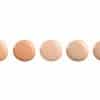Key Points
-
No one is immune to aging, but learning about the promising (and unpromising) anti-aging skincare ingredients helps guide decisions for mature skin.
-
Retinols and retinoids are some of the best anti-aging skincare ingredients, but they aren't for everyone.
-
Using more of a good ingredient doesn't equal better effects on the skin.
Do you like what you see when you look in the mirror? Or do you find yourself avoiding taking a close look at yourself as time passes?
Skin aging is inevitable, but some signs of aging are reversible. Turn back the clock on wrinkles, dark spots, and more with the right topical skincare ingredients.
Retinol and Retinoids
Retinol and retinoids are powerful wrinkle-reduction staples. Retinoid is the umbrella term for vitamin A derivatives, while retinol is a type of retinoid. In the skincare market, people often refer to retinoids as prescription-only treatments that are more potent than over-the-counter retinol.
Retinoids increase collagen production to reduce fine lines and wrinkles. These forms of vitamin A improve skin tone, texture, and hyperpigmentation.
Some people blindly start their retinol treatments. Applying too much retinol and using an aggressive form may wreak havoc on your skin. Since retinol is initially irritating and drying, it's best to introduce it slowly. Start with a low dosage of retinol, using it one to three times per week until your skin acclimates to this wrinkle-reduction treatment.
Leave a gap between each time you apply the retinol. For example, spread the treatment application use to every other day. A pea-sized amount is all you need to cover your entire face. To lessen the unpleasant effects of retinoids, use a soothing moisturizer before and after your vitamin A derivative.
People often miss out on the benefits of retinol and retinoids because their side effects cause them to quit the treatment too quickly. In her How To Use Retinol: Easy Beginner Guide, New York City-based dermatologist Dr. Shereene Idriss stresses the importance of "consistency over intensity." In short, she recommends using "the least aggressive form consistently over weeks, months, even years" to see improvements without irritating your skin.
Antioxidant Serums
Antioxidant serums ward off free radicals: unstable atoms that damage collagen and trigger oxidative stress. This makes the skin vulnerable to fine lines, wrinkles, pigmentation issues, and sagging. The body naturally produces free radicals, but pollution, UV radiation, and certain lifestyle habits also create these skin-aging culprits.
Antioxidant serums protect the skin from free radical damage induced by environmental stressors. A popular antioxidant in the skincare market is vitamin C. Vitamin C reduces hyperpigmentation, brightens the skin, and combats free radicals. Not all forms of vitamin C are the same. Some are more potent and effective than others, so finding the correct formulation for your skin is essential.
Peptides and Growth Factors
Made of short chains of amino acids, peptides plump and firm the skin by stimulating collagen and elastin production. Growth factors are proteins that support various cell functions. The skin naturally makes growth factors to help build collagen and elastin and repair skin damage caused by aging, UV light, pollution, and other factors.
Your body produces fewer peptides and growth factors as you age, causing signs of aging to appear. Applying topical peptides and growth factors improves some skin aging concerns, like skin elasticity, but not all treatments are equal. Some need more research to determine their efficacy.
Hyaluronic Acid
Although it contains the word "acid," hyaluronic acid (HA) is not a chemical exfoliant. Your body naturally makes this active ingredient which has become ubiquitous in many moisturizing products and serums. HA is a water magnet, drawing in water from the skin or the air to "quench" the epidermis. It also has a plumping effect on the skin while making fine lines and wrinkles less visible.
Many hunt down this ingredient to hydrate their skin, but not all get it onto their skin correctly. Applying HA the wrong way may cause your skin to lose water and cause irritation. To prevent drying out your skin, spread and pat the HA serum on damp skin, and follow it with an occlusive or emollient moisturizer to lock in moisture. Look for moisturizers containing both HA and occlusive/emollient ingredients.
Beware that not all HA ingredients are the same. There are many different forms of it, each with different molecular weights. A common form is sodium hyaluronate: the salt version of HA.
Why does hyaluronic molecular weight matter? Many skincare brands boast that their products have HA with low molecular weight to reach deeper layers of the skin. Dr. Sheerene Idriss debunks this myth: "Despite the size that is being used, hyaluronic acid sits at the top layer of your skin; it usually lies within your epidermis."
In short, topical HA won't hydrate your dermis.
Dr. Shereene debunks the claim that HA is hydrating. If there are low humidity levels in the air or your environment, HA has no choice but to pull the water from your skin. As a result, this humectant increases transepidermal water loss, dehydrating your skin in the long run.
That's why many recommend sealing HA in with an occlusive moisturizer to prevent water loss. Wouldn't it make more sense to find a moisturizer with a humectant (like glycerin) that penetrates the deeper layers of the skin and slows down transepidermal water loss?
HA offers a temporary plumping effect but may eventually dry out your skin. Your skin doesn't need it; there are better humectants out there. Plus, your skincare products might already contain this ingredient, and layering too much HA at once may lead to unhappy skin. That doesn't mean you should avoid hyaluronic acid at all costs but try not to overuse it unless you want to increase your risk of dry, irritated skin.
To avoid overusing HA, only use one product containing this ingredient. As for mature skin, topical HA won't help reverse aging.
Sun Protection
Sunscreen is an essential skincare product in any skincare ritual. If you only have to use three skincare products for the rest of your life, sunscreen is one of them. Wearing sunscreen reduces your chance of developing skin cancer and prevents premature skin aging.
Don't settle for just any sunscreen, as not all provide enough protection against the sun's harmful rays. Opt for a sunscreen labeled broad-spectrum SPF 30 (or higher) to protect your skin from UVA and UVB rays. A broad-spectrum SPF 30 sunscreen blocks up to 97 percent of UVB rays.
No sunscreen filters out 100 percent of the sun's rays. Wearing sunscreen doesn't mean you won't burn in the sun. To avoid sunburn, wear multiple layers of sunscreen and reapply it every two hours or as needed. Reapply after sweating or swimming.
Although wearing sunscreen daily is vital to maintaining healthy, youthful skin, it's not the best sun protection measure. The best way to protect your skin from UV radiation is to stay out of the sun. Stay in shaded areas and cover up with sun-protecting clothing.
Avoid tanning beds and sunbathing at all costs to prevent skin damage and skin cancer.
Niacinamide
Niacinamide is a type of vitamin B3 that offers many benefits to the skin. According to board-certified dermatologists Dr. L.J. Maxfield and Dr. Muneeb Shah, niacinamide calms inflammation, limits oil production and treats pigmentation issues to improve skin tone.
Apart from brightening dark spots, this antioxidant-acting ingredient also boosts collagen production, helping keep the appearance of fine lines and wrinkles at bay. Niacinamide is a moisturizing ingredient, as it limits water loss from the skin.
Choose Consistency Over Quantity
Don't oversaturate your face with skincare ingredients, even if they offer benefits like better skin elasticity and wrinkle reduction. Overusing skincare ingredients may irritate your skin.
The more that you use them or the higher the dosage doesn't lead to better skin results. You may see better results by being consistent with your skin treatments rather than prioritizing a stronger ingredient concentration. A good rule of thumb in any skincare routine is less is more, or a little goes a long way.
For more skin tips, subscribe to CosmeticCenter.










